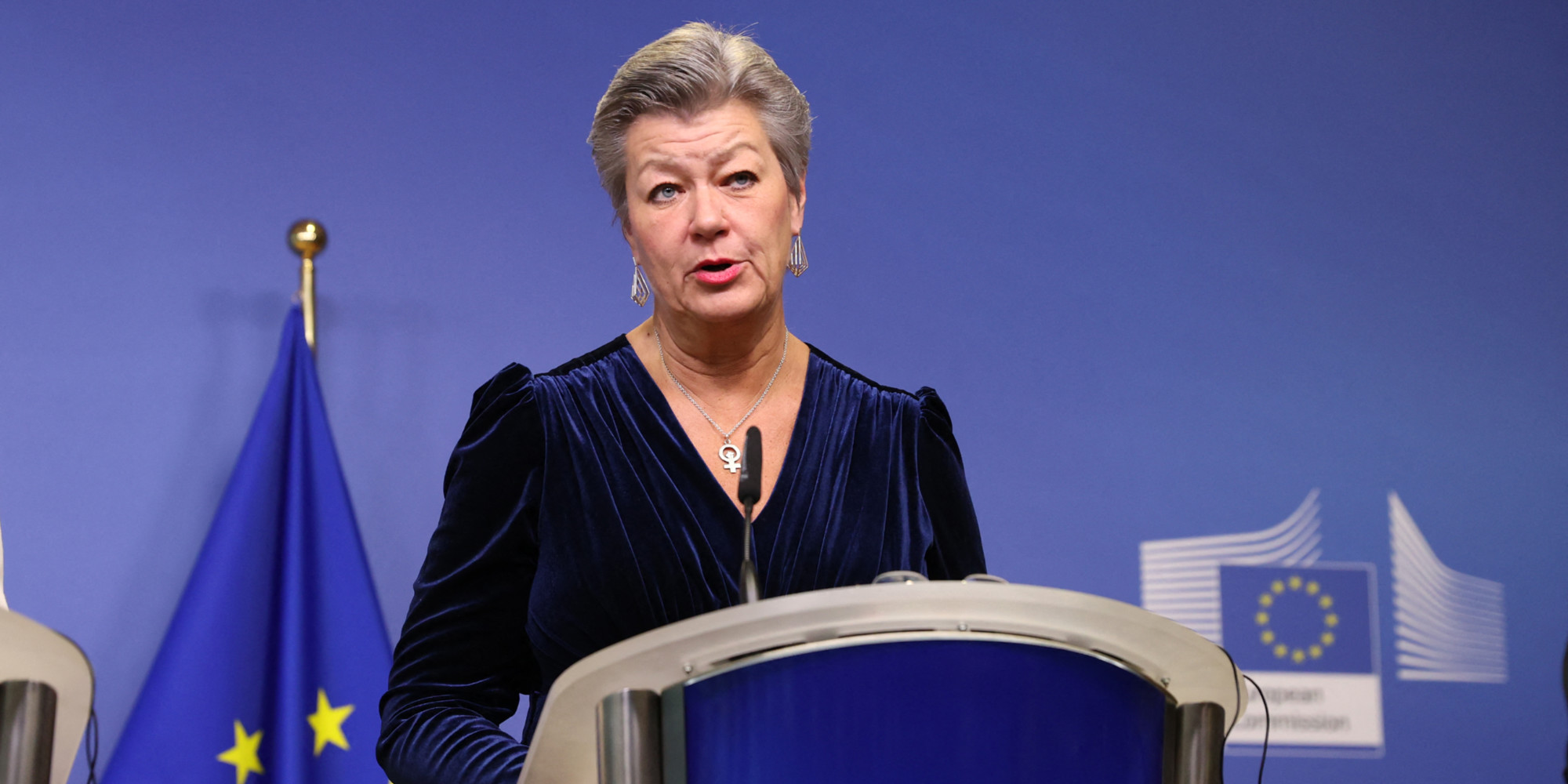European interior ministers are trying Thursday in Luxembourg to agree to unblock the difficult reform of migration policy, during a crucial meeting that Frenchman Gérald Darmanin had to leave hastily following a knife attack. in his country. The French Minister of the Interior left the conference center at the end of the morning, after the announcement that this attack which took place in Annecy (East of France) seriously injured several young children. The vital prognosis is engaged for two of the four affected children, and for one adult. The alleged perpetrator of the attack, who was arrested, is a Syrian refugee, a police source in Paris said. This EU meeting is seen as a key moment for discussions on the Asylum and Migration Pact.
“It’s been almost three years since I presented this proposal. It has been a marathon and we have maybe 100 meters left,” said European Commissioner for Home Affairs Ylva Johansson, calling on member states to do “the last meters to reach an agreement today”. Several diplomats assessed the chances of an agreement at “50-50”, as the subject is so contentious within the 27. The question of the reform of the asylum system has returned to the top of the agenda, with an increase in arrivals migrants in the European Union since the end of the pandemic and while some four million Ukrainians are refugees in the EU. The trend is towards an increasingly restrictive migration policy, in a context where the far right has recently won electoral success in several member countries.
“Flexible” solidarity
Sweden, the country holding the six-monthly presidency of the Council of the EU, has submitted to the ministers compromise proposals on two key texts of this Pact. One provides for compulsory but “flexible” European solidarity. Member States would be required to take in a certain number of asylum seekers arriving in an EU country subject to migratory pressure (“relocations”), or failing that, to make a financial contribution to this country. An attempt to find a balance between the Mediterranean countries of first arrival, which would like automatic relocations to other countries, and those like Hungary or Poland which refuse to have asylum seekers imposed on them.
German Chancellor Olaf Scholz, expected in Rome at midday, said Italy and Greece in particular were facing “a huge challenge” with increasing arrivals at their borders. “We cannot leave these countries alone,” he stressed in an interview with Corriere della Sera. The discussions relate to financial compensation of around 20,000 euros for each asylum seeker not relocated, according to several diplomatic sources. The other text submitted to the ministers obliges the Member States to implement an accelerated procedure for examining asylum applications for a certain number of migrants who have the least statistical chance of obtaining refugee status, in centers located at the borders. The objective is to facilitate their return to their country of origin or transit.
“Difficult Compromise”
“There is a compromise on the table which is very difficult for us. I am fighting so that families with small children are not subject to the border procedure,” said German Interior Minister Nancy Faeser . Early in the morning, before being replaced at the meeting by the French ambassador, Gérald Darmanin underlined that the border procedure allowed for a rapid response. “It is today that the situation is not very human,” he said. “When the applicants are entitled to asylum, they are only given very late (…) When they are not entitled to this asylum, we have great difficulty in sending them back to their countries of origin”, he commented.
Austria, which defends a hard line on immigration, pleads to relocate these asylum requests to third countries, on the model of what Denmark planned to do in Rwanda. “I will fight so that we can carry out procedures in safe third countries, in order to prevent people from coming to Europe by sea and drowning,” said Austrian Minister Gerhard Karner. Several countries, including Hungary and Poland, have expressed opposition to the reform proposals, according to diplomats. Decisions are taken by qualified majority, which means that it takes the support of 15 out of 27 countries to reach an agreement.
